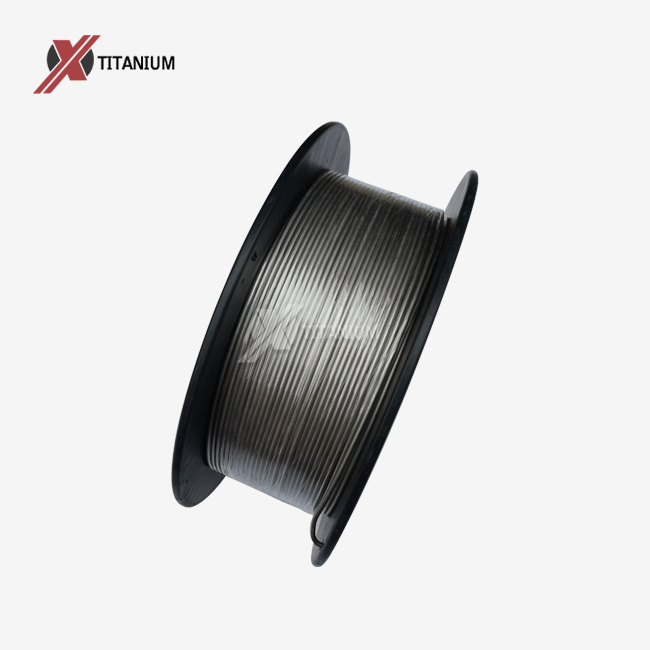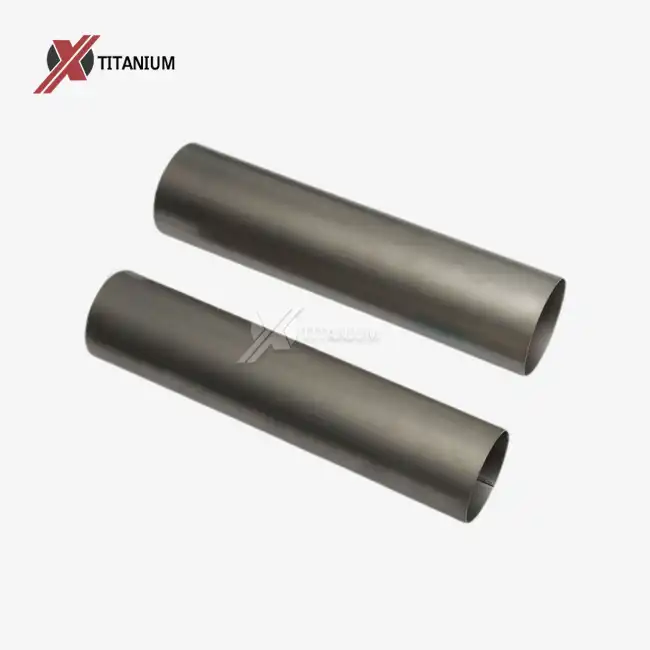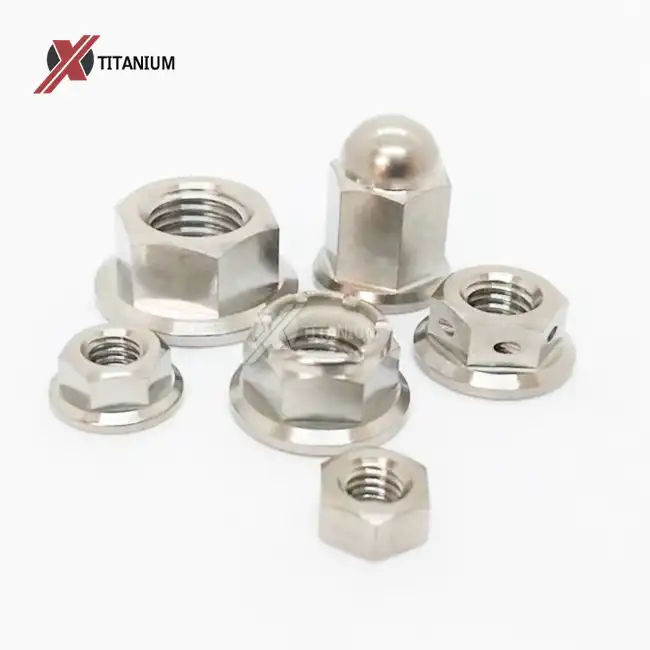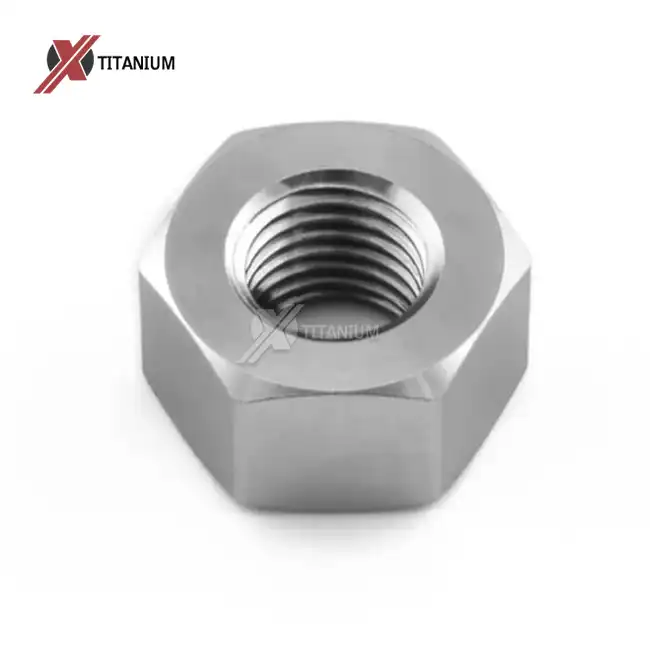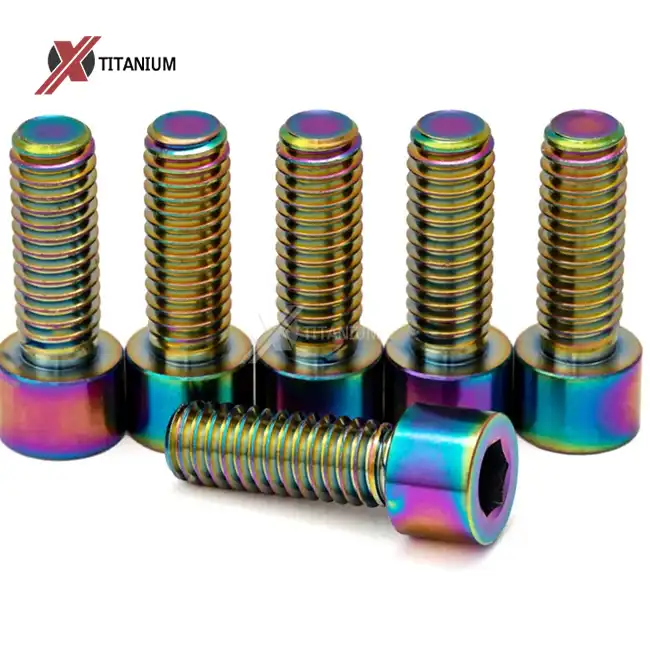Comprehending Medical Titanium Wire
Medical titanium wire is a specialized form of titanium alloy designed specifically for use in healthcare settings. Its primary function is to serve as a crucial component in various medical devices, implants, and surgical instruments. The stringent requirements for biocompatibility, corrosion resistance, and mechanical strength make medical titanium wire a premium product in the healthcare industry.
Composition and Grade
Medical titanium wire is typically composed of either pure titanium (Grade 1 or 2) or titanium alloy (Ti-6Al-4V). The grade selection depends on the specific medical application and the required properties. Pure titanium offers excellent biocompatibility, while Ti-6Al-4V provides enhanced strength and durability.
Biocompatibility
One of the most crucial aspects of medical titanium wire is its biocompatibility. This property ensures that the material does not trigger adverse reactions when in contact with human tissues or bodily fluids. The non-toxic nature of medical titanium wire makes it ideal for long-term implantation and use in various medical procedures.
Surface Finish and Cleanliness
Medical titanium wire undergoes rigorous surface finishing processes to achieve a contamination-free surface. Techniques such as polishing, pickling, and acid cleaning are employed to eliminate any potential sources of infection or complications. The surface finish also plays a vital role in enhancing the wire's corrosion resistance and promoting better integration with surrounding tissues.
Industrial Titanium Wire: Versatility in Manufacturing
Industrial titanium wire, while sharing some similarities with its medical counterpart, is engineered to meet the diverse needs of various industries. From aerospace to chemical processing, industrial titanium wire finds applications in environments where corrosion resistance, high strength-to-weight ratio, and thermal stability are paramount.
Composition and Grade Variations
Industrial titanium wire offers a broader range of compositions and grades compared to medical titanium wire. While pure titanium and Ti-6Al-4V are commonly used, other alloys such as Ti-3Al-2.5V or Ti-5Al-2.5Sn may be employed for specific industrial applications. This diversity allows manufacturers to tailor the wire's properties to meet specific industry requirements.
Surface Treatment Options
Industrial titanium wire can undergo various surface treatments to enhance its performance in different environments. These treatments may include anodizing, nitriding, or coating with protective layers. The choice of surface treatment depends on the intended application and the environmental conditions the wire will face.
Mechanical Properties and Processing
Industrial titanium wire often requires different mechanical properties compared to medical titanium wire. Depending on the application, industrial wire may be subjected to cold rolling, hot rolling, or annealing processes to achieve the desired strength, ductility, and formability. These processing techniques allow for greater versatility in manufacturing and enable the production of wire with varying diameters and cross-sectional shapes.
Key Differences Between Medical and Industrial Titanium Wire
Understanding the distinctions between medical and industrial titanium wire is crucial for manufacturers, engineers, and end-users. Let's explore the key differences that set these two types of titanium wire apart:
Regulatory Standards and Certifications
Medical titanium wire must adhere to stringent regulatory standards and certifications to ensure patient safety. Compliance with standards such as ASTM F136, ASTM F67, ISO 5832-2, and ISO 5832-3 is mandatory for medical-grade titanium wire. Industrial titanium wire, while still subject to quality controls, may not require the same level of regulatory oversight.
Manufacturing Process and Quality Control
The manufacturing process for medical titanium wire involves more rigorous quality control measures compared to industrial titanium wire. Each step, from material selection to final packaging, is meticulously monitored and documented to ensure traceability and compliance with medical standards. Industrial titanium wire production, while still maintaining high-quality standards, may have more flexibility in terms of process parameters and quality control measures.
Intended Applications and Performance Requirements
Medical titanium wire is designed specifically for use in the human body, requiring exceptional biocompatibility and long-term stability. Its applications include orthopedic implants, dental devices, and surgical instruments. Industrial titanium wire, on the other hand, is engineered to withstand various environmental conditions and mechanical stresses encountered in industrial settings. Its applications range from aerospace components to chemical processing equipment.
Surface Finish and Cleanliness Standards
The surface finish requirements for medical titanium wire are significantly more stringent than those for industrial titanium wire. Medical applications demand a contamination-free surface to prevent infections and ensure proper integration with biological tissues. Industrial titanium wire may have less stringent surface finish requirements, depending on the specific application.
Cost and Availability
Due to the higher regulatory standards and more specialized manufacturing processes, medical titanium wire is generally more expensive than industrial titanium wire. The availability of medical titanium wire may also be more limited, as production volumes are often smaller and more specialized. Industrial titanium wire, with its broader range of applications and less stringent requirements, is typically more readily available and cost-effective for large-scale industrial use.
Traceability and Documentation
Medical titanium wire requires extensive documentation and traceability throughout its production and supply chain. Each batch of wire must be fully traceable back to its raw materials and manufacturing processes. Industrial titanium wire, while still requiring quality documentation, may not necessitate the same level of detailed traceability.
Conclusion
Medical titanium wire and industrial titanium wire, while sharing the same base material, are distinctly different products tailored to meet the unique demands of their respective fields. Medical titanium wire prioritizes biocompatibility, strict regulatory compliance, and precision manufacturing to ensure patient safety and optimal performance in healthcare settings. Industrial titanium wire offers greater versatility in composition and processing, catering to a wide range of industrial applications where corrosion resistance and mechanical strength are paramount. Understanding these key differences is essential for selecting the appropriate titanium wire for specific applications, whether in the medical field or various industrial sectors.
At Baoji Chuanglian New Metal Material Co., Ltd., we specialize in manufacturing both medical and industrial titanium wire to meet the diverse needs of our clients. With over a decade of experience in titanium product machining and research, we offer a comprehensive range of titanium products, including medical titanium wire in stock. Our commitment to quality and innovation ensures that we deliver titanium wire that meets the highest standards for both medical and industrial applications.
Frequently Asked Questions
What is the main difference between medical and industrial titanium wire?
Medical titanium wire is designed for use in the human body, requiring strict biocompatibility and regulatory compliance. Industrial titanium wire is engineered for various industrial applications, offering greater versatility in composition and processing.
Can industrial titanium wire be used for medical applications?
No, industrial titanium wire does not meet the stringent regulatory and biocompatibility requirements for medical use. Only specifically manufactured medical-grade titanium wire should be used in healthcare applications.
What are the common applications of medical titanium wire?
Medical titanium wire is used in orthopedic implants, dental devices, surgical instruments, and various biomedical devices such as pacemaker leads and stents.
Why Choose Baoji Chuanglian for Your Titanium Wire Needs?
As a leading titanium wire manufacturer and supplier, Baoji Chuanglian New Metal Material Co., Ltd. offers unparalleled expertise in both medical and industrial titanium wire production. Our state-of-the-art factory utilizes advanced manufacturing techniques, including cold rolling, hot rolling, and precision annealing, to deliver high-quality titanium wire that meets your exact specifications. With medical titanium wire in stock and a wide range of industrial options available, we're your one-stop solution for all titanium wire needs. Contact us today at info@cltifastener.com or djy6580@aliyun.com to experience the Baoji Chuanglian difference.
References
1. Niinomi, M. (2019). Metals for Biomedical Devices. Woodhead Publishing.
2. Brunette, D. M., Tengvall, P., Textor, M., & Thomsen, P. (2017). Titanium in Medicine: Material Science, Surface Science, Engineering, Biological Responses and Medical Applications. Springer.
3. Rack, H. J., & Qazi, J. I. (2006). Titanium alloys for biomedical applications. Materials Science and Engineering: C, 26(8), 1269-1277.
4. Lütjering, G., & Williams, J. C. (2007). Titanium. Springer Science & Business Media.
5. Peters, M., Hemptenmacher, J., Kumpfert, J., & Leyens, C. (2003). Structure and Properties of Titanium and Titanium Alloys. Wiley-VCH.
